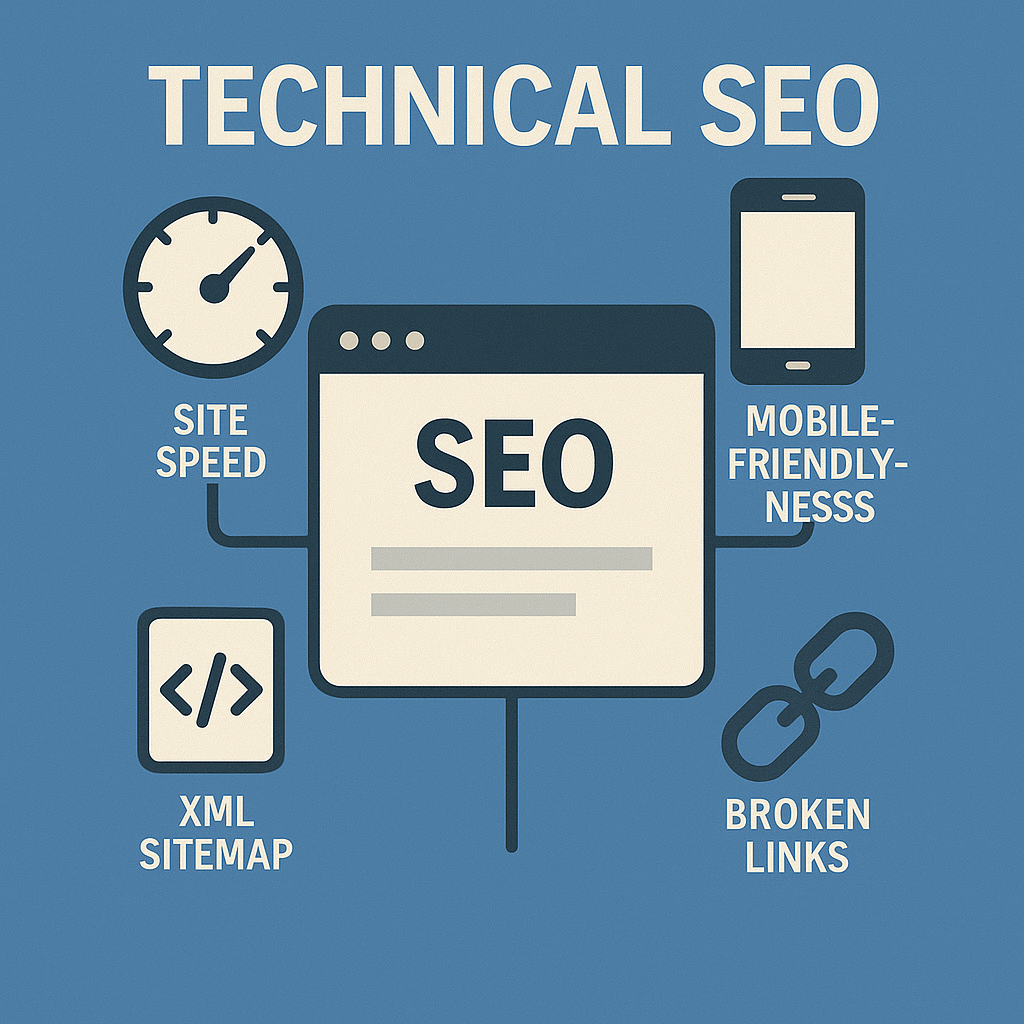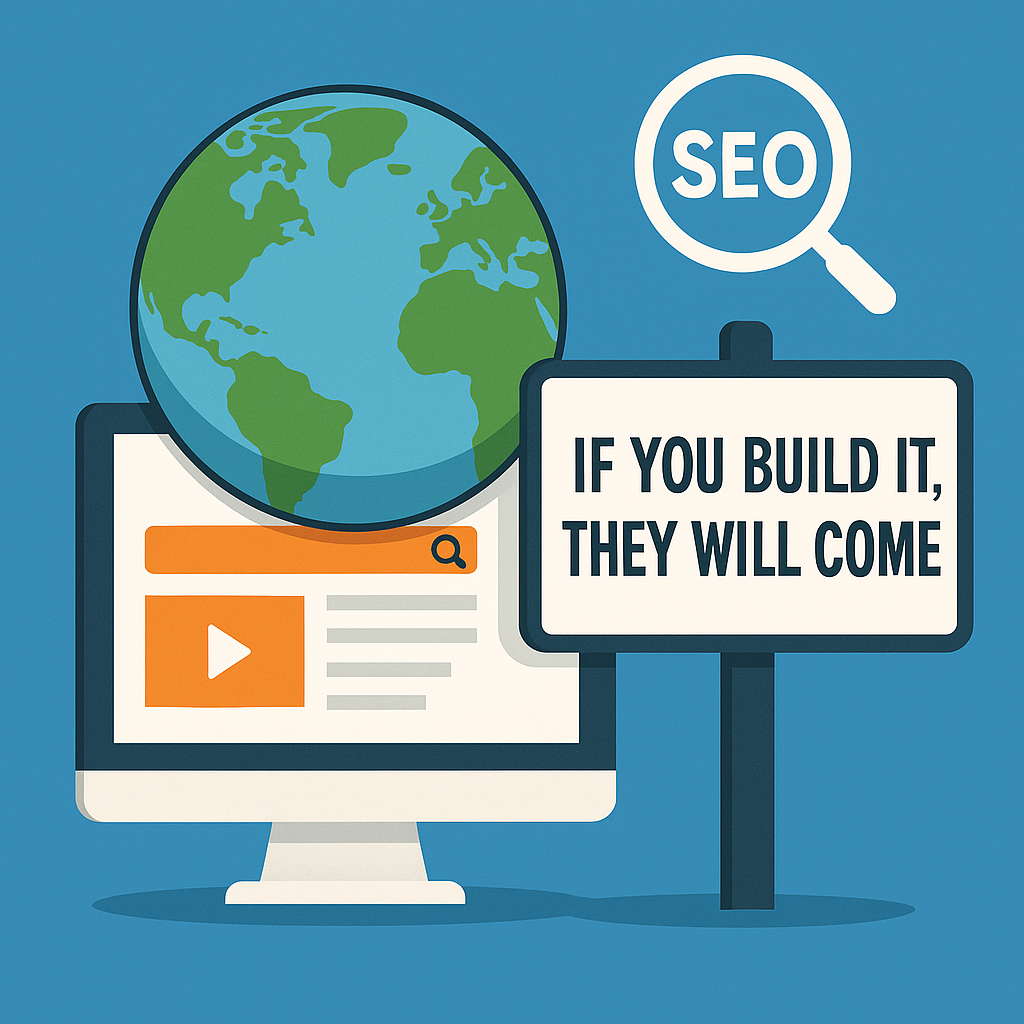 You’ve just spent something north of $5k on web design and built an awesome looking website, but then what? It’s not like the late 80s movie “Field of Dreams” where the tagline was “If you build it, they will come.” Did I just show my age? Anyway, I digress.
You’ve just spent something north of $5k on web design and built an awesome looking website, but then what? It’s not like the late 80s movie “Field of Dreams” where the tagline was “If you build it, they will come.” Did I just show my age? Anyway, I digress.
Building the site is just the beginning.
If you want your site to be found in search engines like Google and Bing, you need to help them understand what your site is about and give them a reason why they should display your site in the search results over your competitors.
In this article, I’ll give you some SEO tips you can implement yourself if you want Google to love your site and bring traffic without spending a cent with an agency.
What Is SEO and Why Should You Care?
SEO or Search Engine Optimisation, helps your website show up in search results.
Google has a series of “Ranking Factors” it uses to evaluate your site. The more positive ranking factors you have, the more Google will love your site and potentially rank you higher in the search engine results pages, or SERPS.
It’s how Google figures out what your pages are about and whether they deserve a spot on page one.
By using the right keywords, improving your content, and fixing technical issues, you make it easier for Google to rank your site. This brings more people to your pages, without paying for ads.
Done well, SEO does two things:
- Bring in more traffic
- Build trust with search engines and users
Google wants to show users helpful, relevant content. SEO helps you prove that your site fits the bill.
How Keywords Help You Get Found
Any Good SEO Strategy Starts With Keyword Research.
Have you ever heard the phrase “be the fish?” The idea is that if you go fishing, you have to think like a fish. Where would the fish be hiding? What would the fish be doing? Why would the fish take the bait? The idea is the same with your website and keyword research. What would customers search for to find your product or service? What would they type into Google? You need to “be the fish” and think like your customer.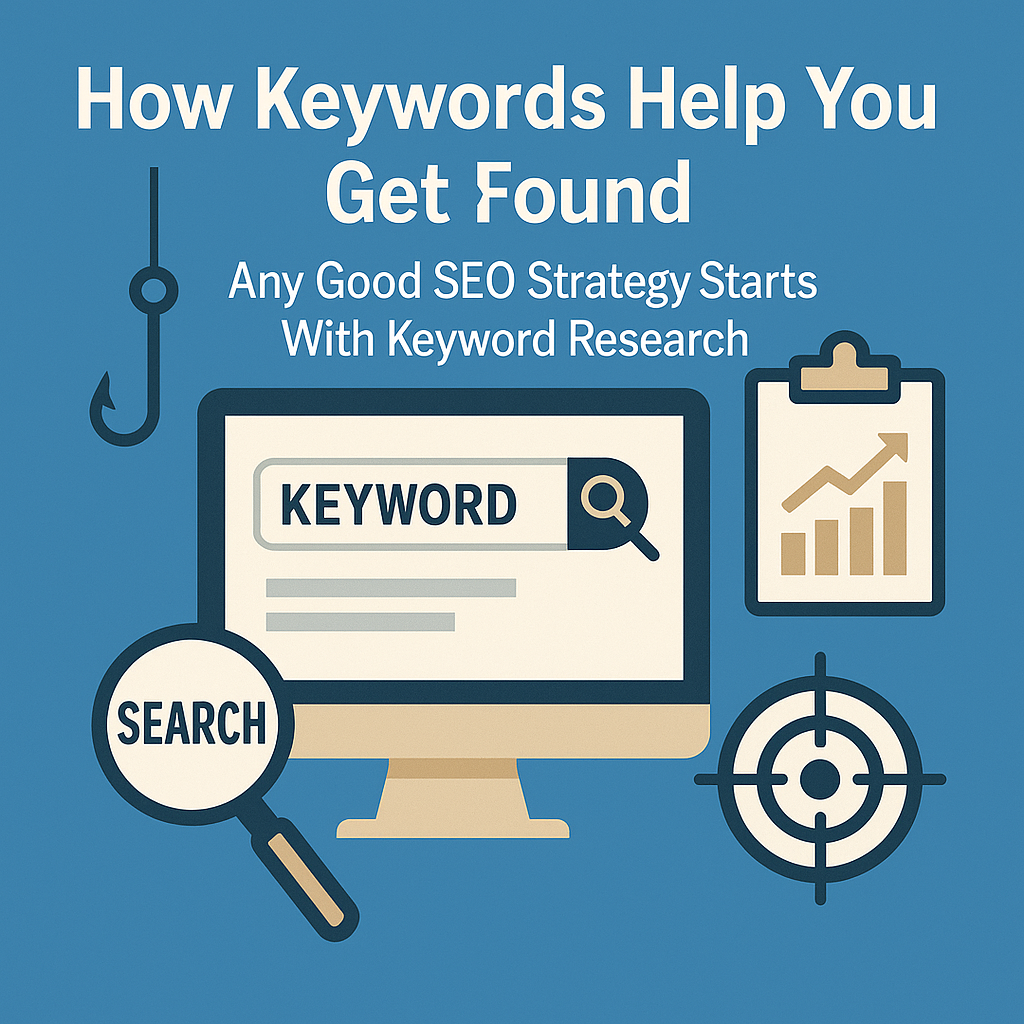
There are lots of free tools you can use for basic keyword research. Sure, there are limitations, but they are a great starting point.
Some of the tools are:
- Google Ads Keyword Planner
- Mangools KWFinder
- MOZ Keyword Explorer
Then you can use these keywords in strategic places like:
- Page titles
- Headings
- Meta descriptions (ooh tech babble)
- Image alt text (more tech babble)
- URL slugs (even more tech babble)
- Throughout the body content
But, don’t overdo it. You don’t want to just stuff keywords into your content to try to make it rank higher in the search engine rankings.
With any piece of content, you should aim to write naturally. Make sure your pages sound like they were written for people, not just for Google.
Check What’s Working
Use tools like Google Search Console or Ahrefs to track which keywords bring in traffic. These tools show valuable information like the estimated monthly search volume for the keyword and potentially how hard it is to rank for that keyword. This shows you what’s working and may highlight areas that need work.
Why Website Design Matters for SEO
SEO isn’t just about words
Google also looks at how your site works. Both logically and technically. It crawls through your site logically, just like a human would view your site.
Starting at the top of the page, working down from left to right, looking at the most important headings and content, then moving to less important headings, and then on to other pages.
But I’m sure you can appreciate that Google crawls millions of pages every day, so they may not crawl every page or the content of every page on your site. So be sure to include your keywords in the key headings and the first paragraph of the page so the reader can easily find the relevant information.
Google looks for things like:
- Is the layout clean and easy to use?
- Does it have clear navigation menus and logical page structure?
- Are there broken links that lead nowhere?
- Do you have pop-ups blocking content?
Make Sure Your Site Works On Mobile
Historically, web pages were designed to be viewed on a computer desktop because, well, mobile phones didn’t exist. But now, something like more than 60% of all Internet searches are done on mobile devices. With this in mind, Google now prioritises the mobile version of your website for content, indexing and ranking.
If the mobile version of your website is poorly designed or incomplete, your rankings may suffer.
Speed Matters
It’s pretty simple. We’ve all been there. You visit a site and sit and wait, and wait and wait, and then you give up and go somewhere else.
People expect the site to load in 2-3 seconds. Some studies show that for every additional second you have to wait for a page to load, you lose 7% of the visitors.
It creates frustration for the user and reduces the time they spend on your site, that is, even if they stay long enough to view the pages. It’s all about user experience.
If your site is slow, people leave, and that hurts your rankings.
Improve speed by:
- Compressing images
- Reducing code bloat
- Using caching tools
How Backlinks Boost Your Authority
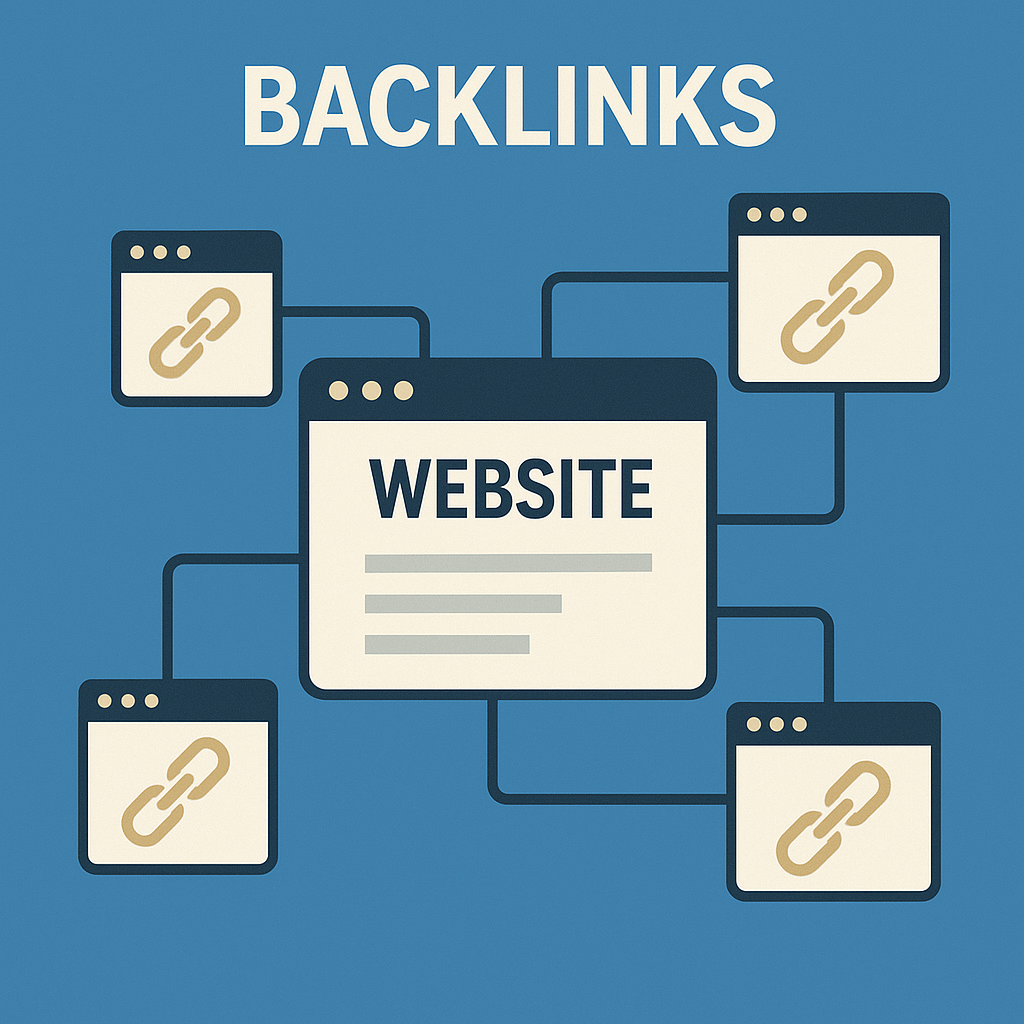
Backlinks are links from other websites to yours and they can be incredibly valuable for building authority in your niche.
Think of it this way. If you have a friend who says Bob’s Plumbing is the best, you may think, sure, fine, whatever. But if 50 different people say Bob’s Plumbing is the best, you think, maybe Bob is awesome. I’ll use his service when I need to.
It’s similar for websites. If another website links back to yours, then they must think you have something valuable to offer, or they think you are an authority in that space.
When Google sees other sites linking to yours, it’s a sign that your content is worth sharing and Google may put you higher in the rankings.
The more high quality backlinks you have, the better.
But not all links are equal. Links from trusted, relevant sites are worth far more than spammy ones. For example, a link from the New York Times, LinkedIn, Harvard University or Government site will have more value than some random Russian based link farm.
Ways to get good backlinks:
- Write guest posts
- Publish helpful resources that others want to share
- Reach out to businesses or blogs in your niche
- Share your content on social media
Track your links
Again, there are several free tools you can use to track your backlinks.
Some tools with both free and paid options are:
- Google Search Console
- MOZ Link Explorer
- Ahrefs
💡 Pro Tip:
Set up Google Alerts with your brand name or URL (without the https://) to get notified when your site or brand gets mentioned.
On-Page vs Off-Page SEO
On-Page SEO Is What You Do On Your Site
These are things you have direct control over. It’s the things you can do on your site.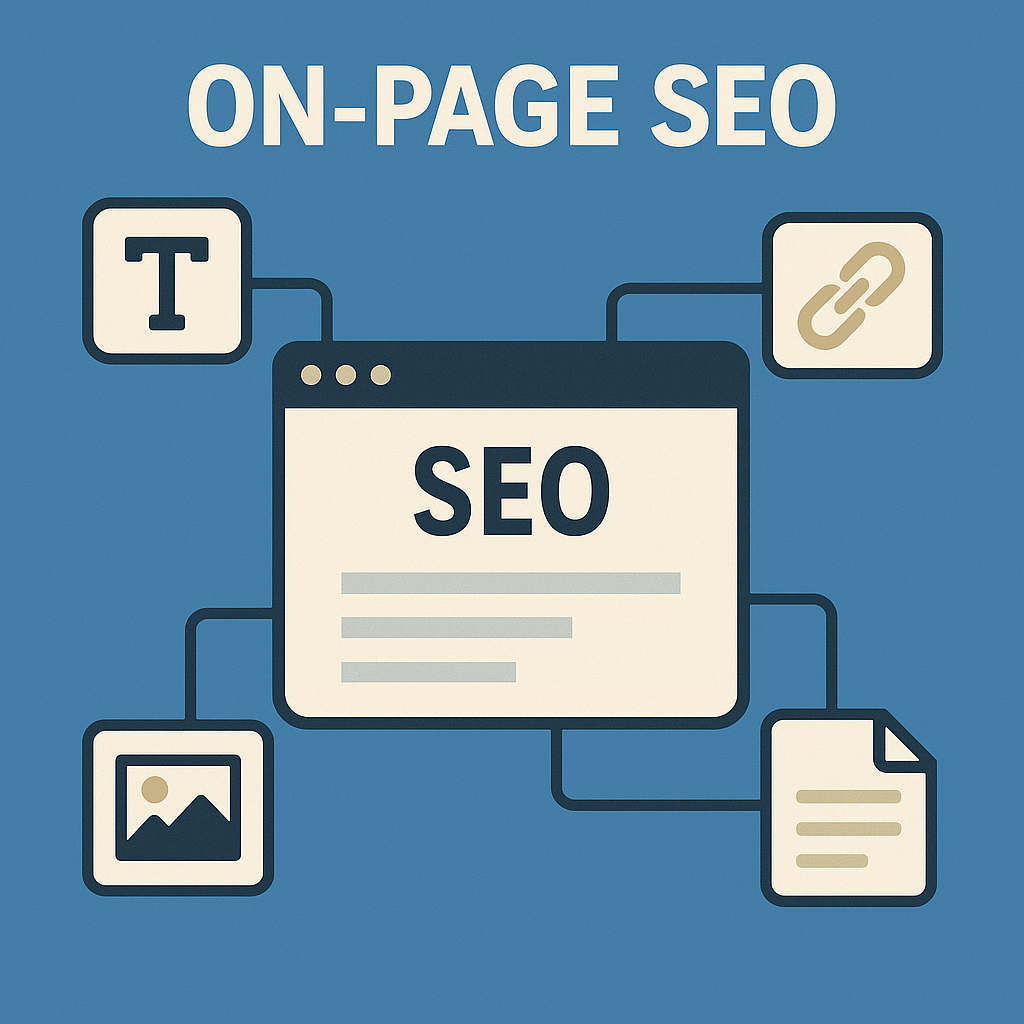
Things like:
- Optimising headings and content
- Writing helpful meta descriptions
- Using alt tags on images
- Improving internal linking
Off-Page SEO Is What Happens Off Your Site
Think of it like outreach to build your good reputation. People do business with you when they know, like, and trust you. It’s the same with Google. Off Page SEO helps build your authority and reputation.
Some things you can do for Off Page SEO: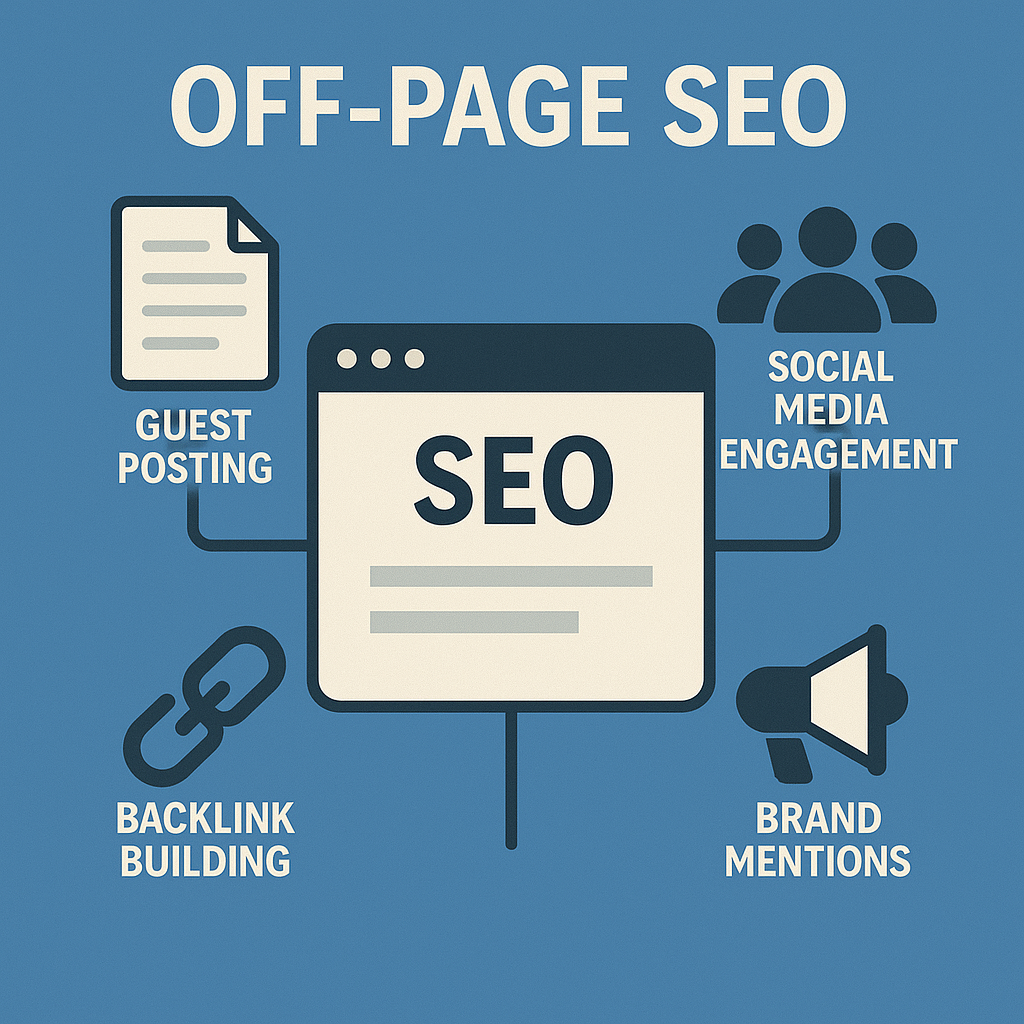
- Backlink building
- Brand mentions
- Social media engagement
- Guest posting
- Online reviews
- Local citations
Do both On-Page and Off-Page SEO
On-Page SEO tells Google, “This is my site and this is what it’s about,” while Off-Site SEO is about authority, saying “These people trust me and so should you.”
They support each other. On-Page is about relevance, and Off-Page is about authority.
Final Thought
SEO isn’t magic and google is pretty logical about how it brings people to your website. It’s about doing the basics well, again and again.
- Know your audience
- Using relevant keywords for your audience
- make sure you keywors
- Build a fast, mobile-friendly site
- Get other sites to link to yours
- Track what’s working and make changes when needed
If you keep improving, Google will take notice. And when that happens, more of the right people will find your site.
FAQ
What strategies can I use to make Google love my website?
To make Google love your website, focus on effective SEO practices, create good content that meets user needs, and optimise your site for page loading speed. Ensuring that your content strategy aligns with search queries can help improve your site’s visibility in organic search results.
How does page experience affect SEO?
Page experience is a crucial factor that affects SEO. Google ranks websites higher when they provide a good user experience, including fast loading times, mobile-friendliness, and low bounce rates. Ensure your homepage and every page on your site loads within 3 seconds to enhance user satisfaction.
What is the importance of content strategy for SEO?
A content strategy that’s well-planned helps search engines understand what your website is about. By producing high-quality, relevant content on your site, you can improve search engine love and attract more traffic to your site. This can also help you rank at the top of the search engine results.
How can I help search engines find my website?
To help search engines find your website, ensure that you have a clear structure, use relevant keywords, and submit your site to Google Webmaster. Regularly updating your content and optimising for search volume can also improve your chances of being discovered through search on Google.
What role does bounce rate play in website traffic?
High bounce rates can negatively affect SEO and indicate that visitors are not finding what they expect on your site. To keep users engaged, focus on improving the content on your site and aligning it with their search intent, which will help maintain traffic to your site.


